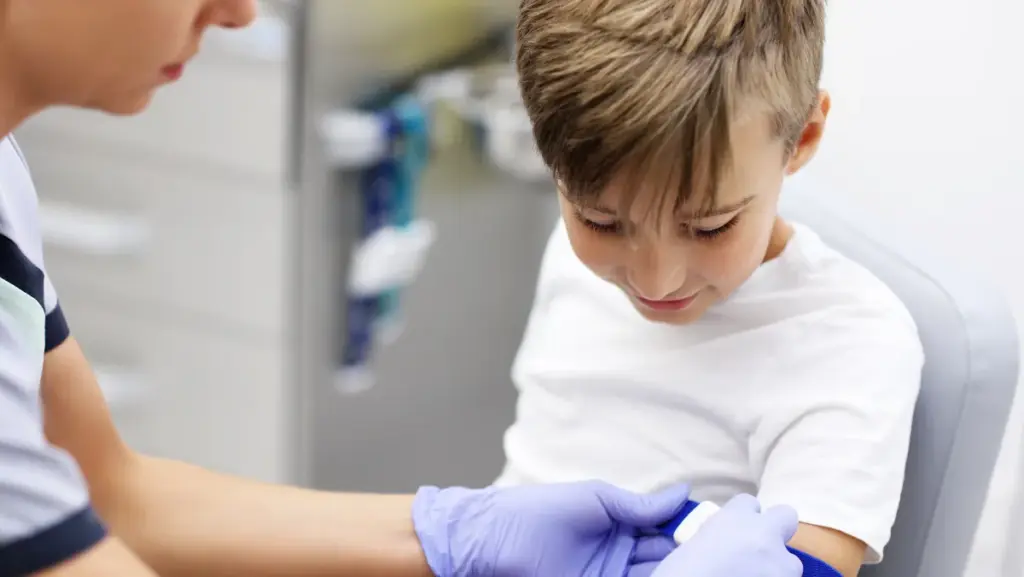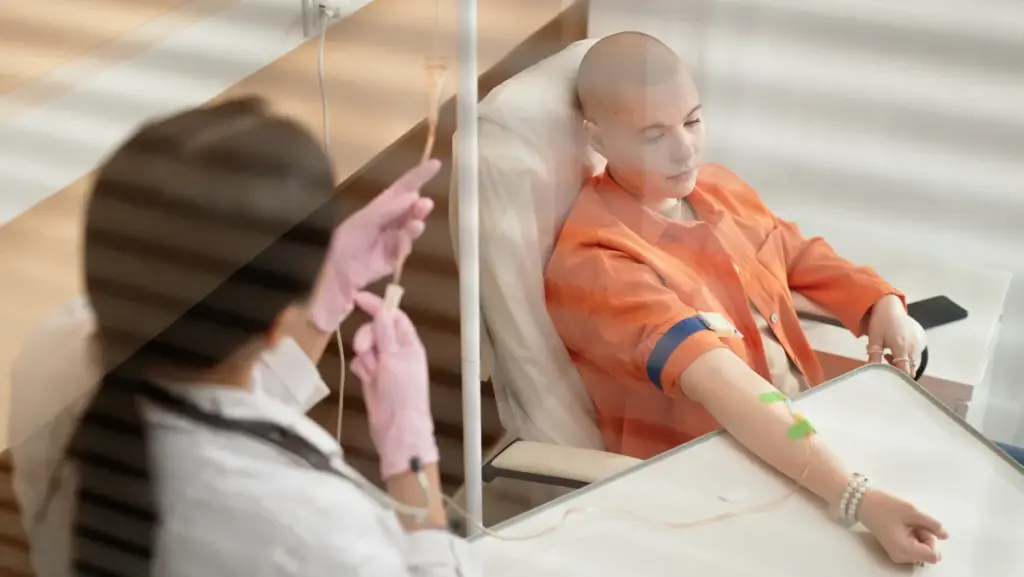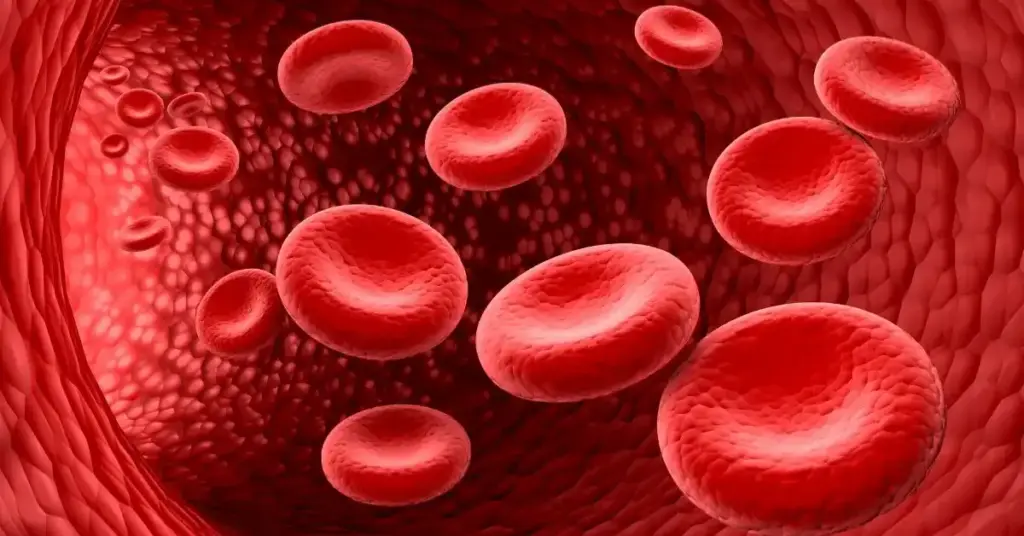
Thyroid cancer is one of the most common cancers of the endocrine system. It occurs when abnormal cells grow in the thyroid gland, a small butterfly-shaped organ located at the base of the neck that produces hormones regulating metabolism, heart rate, and body temperature. While the diagnosis of cancer is always serious, thyroid cancer generally has an excellent prognosis, especially when detected early. With modern diagnostic tools and treatment approaches, most people with thyroid cancer can expect long-term survival and a good quality of life.
The thyroid gland plays a crucial role in maintaining balance in the body. It secretes hormones like thyroxine (T4) and triiodothyronine (T3), which regulate:
When cancer develops in the thyroid gland, these functions may be disrupted, leading to a wide range of symptoms and health complications.
There are several subtypes of thyroid cancer, each with different behavior and treatment outcomes:
Difficult to treat but research into targeted therapies is ongoing.
The exact cause of thyroid cancer is not always clear, but several risk factors have been identified:
Hashimoto’s Thyroiditis – chronic thyroid inflammation may slightly increase risk.
Thyroid cancer often shows no symptoms in the early stages, but common signs include:
Because many thyroid nodules are benign, not every lump indicates cancer — but evaluation is essential.
Doctors use multiple diagnostic tools to confirm thyroid cancer:
Cancer staging helps guide treatment.
Early-stage cancers have excellent outcomes, while advanced stages require aggressive treatment.
Treatment depends on the cancer type, stage, and patient’s overall health.
Clinical trials show promise for aggressive thyroid cancers.
Treatment often requires long-term follow-up and adjustments in lifestyle.
Thyroid cancer generally carries one of the best survival outcomes among cancers.
Younger patients usually respond better to treatment than older patients.
While not all cases can be prevented, certain steps help reduce risk:
Seek medical advice if you notice:
Early consultation ensures faster diagnosis and better outcomes.
Thyroid cancer, while concerning, is among the most treatable forms of cancer. With early detection, advanced surgical techniques, and personalized therapies, survival rates are excellent. Lifelong monitoring and medication may be necessary, but patients can lead normal, healthy lives. Raising awareness about symptoms, risk factors, and the importance of timely check-ups can save lives and improve outcomes.
Thyroid cancer is one of the most common cancers of the endocrine system. It occurs when abnormal cells grow in the thyroid gland, a small butterfly-shaped organ located at the base of the neck that produces hormones regulating metabolism, heart rate, and body temperature. While the diagnosis of cancer is always serious, thyroid cancer generally has an excellent prognosis, especially when detected early. With modern diagnostic tools and treatment approaches, most people with thyroid cancer can expect long-term survival and a good quality of life.
Understanding the Thyroid Gland
Types of Thyroid Cancer
Causes & Risk Factors
Symptoms of Thyroid Cancer
Diagnosis
Stages of Thyroid Cancer
Treatment Options
Living With Thyroid Cancer
Prognosis & Survival Rates
Prevention & Risk Reduction
When to See a Doctor?
Conclusion
The thyroid gland plays a crucial role in maintaining balance in the body. It secretes hormones like thyroxine (T4) and triiodothyronine (T3), which regulate:
When cancer develops in the thyroid gland, these functions may be disrupted, leading to a wide range of symptoms and health complications.
There are several subtypes of thyroid cancer, each with different behavior and treatment outcomes:
Difficult to treat but research into targeted therapies is ongoing.
The exact cause of thyroid cancer is not always clear, but several risk factors have been identified:
Hashimoto’s Thyroiditis – chronic thyroid inflammation may slightly increase risk.
Thyroid cancer often shows no symptoms in the early stages, but common signs include:
Because many thyroid nodules are benign, not every lump indicates cancer — but evaluation is essential.
Doctors use multiple diagnostic tools to confirm thyroid cancer:
Cancer staging helps guide treatment.
Early-stage cancers have excellent outcomes, while advanced stages require aggressive treatment.
Treatment depends on the cancer type, stage, and patient’s overall health.
Clinical trials show promise for aggressive thyroid cancers.
Treatment often requires long-term follow-up and adjustments in lifestyle.
Thyroid cancer generally carries one of the best survival outcomes among cancers.
Younger patients usually respond better to treatment than older patients.
While not all cases can be prevented, certain steps help reduce risk:
Seek medical advice if you notice:
Early consultation ensures faster diagnosis and better outcomes.
Thyroid cancer, while concerning, is among the most treatable forms of cancer. With early detection, advanced surgical techniques, and personalized therapies, survival rates are excellent. Lifelong monitoring and medication may be necessary, but patients can lead normal, healthy lives. Raising awareness about symptoms, risk factors, and the importance of timely check-ups can save lives and improve outcomes.





